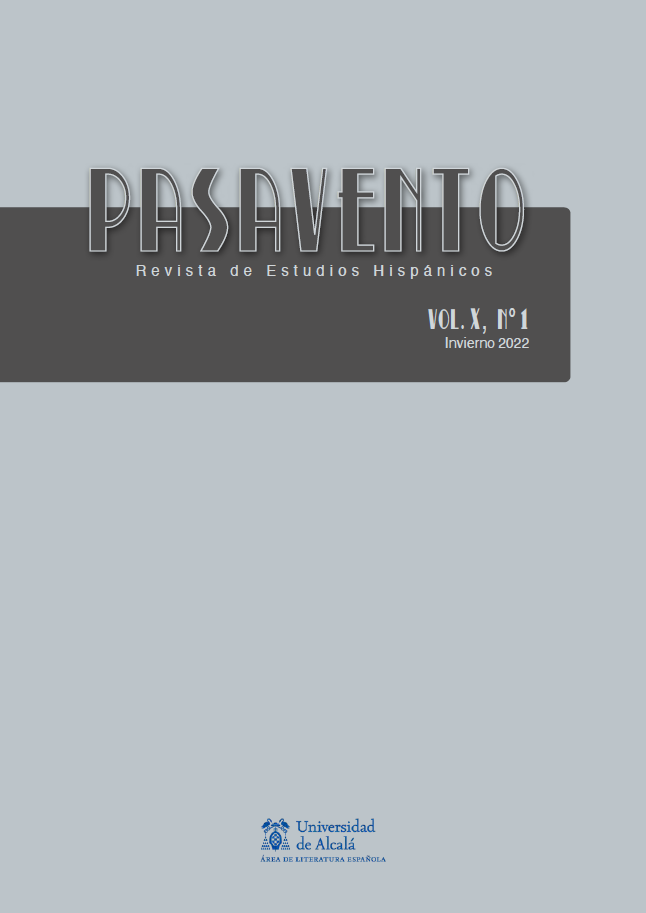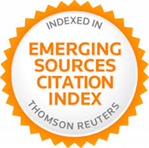Autobiography, Specularity, and the Non-Identitarian Self
An Aporia? A Reflection on the Possibility of Saying "I” in a Trans Story
DOI:
https://doi.org/10.37536/preh.2022.10.1.1354Keywords:
Transtextual and sexual gender I, Mash-up, Trans-sudaca contextAbstract
This article proposes to explore from the perspective of the figurations of a nomadic self, the textual gender and the sexual gender, how subjectivity is configured in trans * stories of an autobiographical nature. In this sense, the Fatal (2020) chronicle of Carolina Unrein, as a mash-up made of discontinuous fragments, is a privileged setting to explore the Latin American “trava” and “trans” universe, not from the academic paradigms on gender from the North, but through the complex diversity of the concrete and singular registers of the experience of configuring oneself as a transvestite body in which the individual is always mediated by the collective, the collective by the individual and rooted in the context that Susy Shock calls “trans sudaca”. The specularity of the narcissistic identity story is here overcome by the construction of a fragmentary and discontinuous narrative whose organizing vanishing point is a central event: the vaginoplasty to which the narrator undergoes.
References
Arfuch, Leonor (2013). Memoria y autobiografía. Exploración en los límites. Buenos Aires: Fondo de Cultura Económica.
Berkins, Lohana (2016). Entrevista, YouTube, 7 abril. <https://www.youtube.com/watch?v=CJAzEfQg-Tw> (20 de marzo de 2021).
Butler, Judith (2002). Cuerpos que importan. Buenos Aires: Editorial Paidós.
Comedi, Agustina (dir.) (2017). El silencio es un cuerpo que cae. FilmAffinity.
De Man, Paul (1991). “La autobiografía como desfiguración”, in La autobiografía y sus problemas teóricos. Estudios de investigación documental, Anthropos, Suplemento, 29: 113-117.
Derrida, Jacques (1980). “La loi du genre”, Glyph, 7: 176-201.
Fischer Pfaeffle, Amalia E. (2003). “Devenires, cuerpos sin órganos, lógica difusa e intersexuales”, in Sexualidades migrantes. Género y transgénero, ed. Diana Maffía. Buenos Aires: Feminaria Editora, 11-32.
Forn, Juan (2019). “Prólogo”, in Camila Sosa Villada, Las malas. Buenos Aires: Tusquets, 7-11.
Giorgi, Gabriel (2014). Formas comunes. Animalidad, cultura, biopolítica. Buenos Aires: Eterna Cadencia Editora.
Jameson, Frederic (1989). Documentos de cultura, documentos de barbarie. Buenos Aires: Visor.
Lejeune, Phillipe (1991). “El pacto autobiográfico”, in La autobiografía y sus problemas teóricos, Anthropos. Suplemento, 29: 47-61.
Lemebel, Pedro (1996). “Manifiesto. Hablo por mi diferencia”, in Loco afán. Crónicas de sidario. Santiago de Chile: Editorial LOM, 83-90.
Máscolo, Tomás (2016). “Entrevista. Quiero ser lo que soy: Naty Menstrual”, La izquierda diario, <http://www.laizquierdadiario.com/Quiero-ser-lo-que-soy-Naty-Menstrual> (3 de febrero de 2020).
Menstrual, Naty (2009). “Soy lo que soy”, <http://natymenstrual.blogspot.com/2009/12/soy-lo-que-soy.html?q=soy+lo+que+soy&view=timeslide> (19 de marzo de 2021).
Montes, Alicia (2021). “Devenir travesti: el cuerpo como intervalo problemático: Las malas de Camila Sosa Villada”, in Devenir Monstruo, dir. Audran Marie y Silvina Sánchez. La Plata: Universidad Nacional de La Plata (en prensa).
Morales, Clara (2020). “Entrevista. Camila Sosa Villada: ‘Para mí, el premio es estar viva, estar haciendo ficción de todo esto’”, Infolibre, 8 de diciembre, <https://www.infolibre.es/cultura/camila-sosa-villada-premio-viva-haciendo-ficcion_1_1190696.html> (20 de marzo de 2021).
Preciado, Paul (2011). Manifiesto contrasexual. Barcelona: Anagrama.
Rancière, Jacques (2010). El espectador emancipado. Buenos Aires: Manantial.
Rubin, Gayle S. (1996). “El tráfico de mujeres. Notas sobre la ‘economía política del sexo’”, in El género. La construcción cultural de la diferencia sexual, comp. Marta Lamas. México: PUEG-UNAM, 35-91.
Sacayan, Diana (2017). Conurbano, Capítulo 1, Canal Encuentro, 7 julio, <https://www.youtube.com/watch?v=85tKM6oQwJg> (20 de marzo de 2021).
Shock, Susy (2011). “Reivindico mi derecho a ser un monstruo”, Youtube, 30 octubre, <https://www.youtube.com/watch?v=udup-LFqnXI> (19 de abril de 2021).
Shock, Susy (2019). “Prólogo”, in Marlene Wayar, Travesti/Una teoría lo suficientemente buena. Buenos Aires: Editorial Muchas Nueces.
Sosa Villada, Camila (2014). Camila Sosa Villada Profunda. Charla TEDx Córdoba, <https://www.youtube.com/watch?v=KQDRKphX23M> (30 de enero de 2022).
Sosa Villada, Camila (2018). El viaje inútil. Córdoba: Ediciones DocumentA/Escénicas.
Sosa Villada, Camila (2019). Las malas. Buenos Aires: Tusquets.
Stone, Sandy (2017). “El imperio contraataca. Un manifiesto postransexual”, in Políticas trans: una antología de textos desde los estudios trans norteamericanos, ed. Pol Galofré y Miquel Missé Sánchez. Madrid: Egales.
Unrein, Carolina (2020). Fatal. Buenos Aires: Planeta.
Wayar, Marlene (2019). Travesti / Una teoría lo suficientemente buena. Buenos Aires: Editorial Muchas Nueces.
Wayar, Marlene (2021). Furia Travesti. Diccionario de la T a la T. Buenos Aires, Paidós.
Downloads
Published
How to Cite
Issue
Section
License
Copyright (c) 2022 Pasavento. Revista de Estudios Hispánicos

This work is licensed under a Creative Commons Attribution 4.0 International License.








